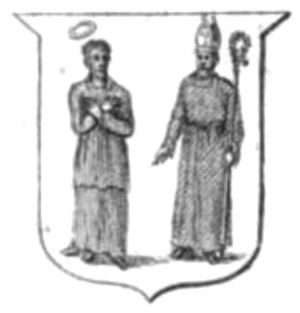Andrew Munro (bishop) facts for kids
Quick facts for kids Andrew MunroAindréas Mac an Rothaich |
|
|---|---|
| Bishop of Ross (postulate) | |
 |
|
| Church | Roman Catholic Church |
| See | Diocese of Ross |
| In Office | 1440–1441 |
| Predecessor | John Bullock |
| Successor | Thomas Tulloch |
| Personal details | |
| Died | before 24 October 1454 |
| Previous post | Archdeacon of Caithness (1422–1451 × 1454) |
Andrew Munro (died before October 24, 1454) was an important church leader in Scotland during the 1400s. His family name, Munro, suggests he came from Ross, a region in Scotland, and was part of Clan Munro. He was also known by his Gaelic name, Aindréas Mac an Rothaich.
Andrew Munro's Early Career
Andrew Munro began his career in the church as an Archdeacon. An Archdeacon is a senior church official who helps the bishop manage a specific area.
- In 1421 or 1422, he became the Archdeacon of Ross. This happened after he swapped roles with another churchman, John de Inchmartin.
- The Pope officially approved his position on October 6, 1422. This approval was confirmed again in 1431.
Aiming to Become Bishop of Ross
After the Bishop of Ross, John Bullock, passed away around 1439 or 1440, Andrew Munro was chosen by the local church leaders to be the next bishop. This process is called "postulation."
- Usually, a new bishop is "elected," but Munro was "postulated" because of a special situation regarding his birth. This made it harder for him to be directly elected.
- Despite a lot of effort and money spent, Pope Eugenius IV did not approve Munro's appointment.
- Instead, the Pope chose Thomas Tulloch, who was the Dean (another senior church leader) of the cathedral.
- To make up for this, Pope Eugenius IV gave Andrew Munro a yearly payment of £40. This money came from the Bishop of Ross's income.
Challenges and Later Life
Andrew Munro did not give up easily. He tried to get his appointment confirmed by another Pope, Felix V, who was known as an "Anti-Pope" at the time. This means he was a rival to Pope Eugenius IV.
- Munro traveled to Basel in Germany to meet Felix V.
- On May 30, Felix V did confirm Munro's appointment as bishop. However, this approval was not widely accepted and did not become official.
- Andrew Munro continued to serve the church in other ways. In 1451, he was mentioned as a "Commissary" for the diocese of Ross. A Commissary is someone who acts on behalf of the bishop.
- He still held his position as Archdeacon during this time.
- Andrew Munro passed away sometime before October 24, 1454.
 | Mary Eliza Mahoney |
 | Susie King Taylor |
 | Ida Gray |
 | Eliza Ann Grier |

